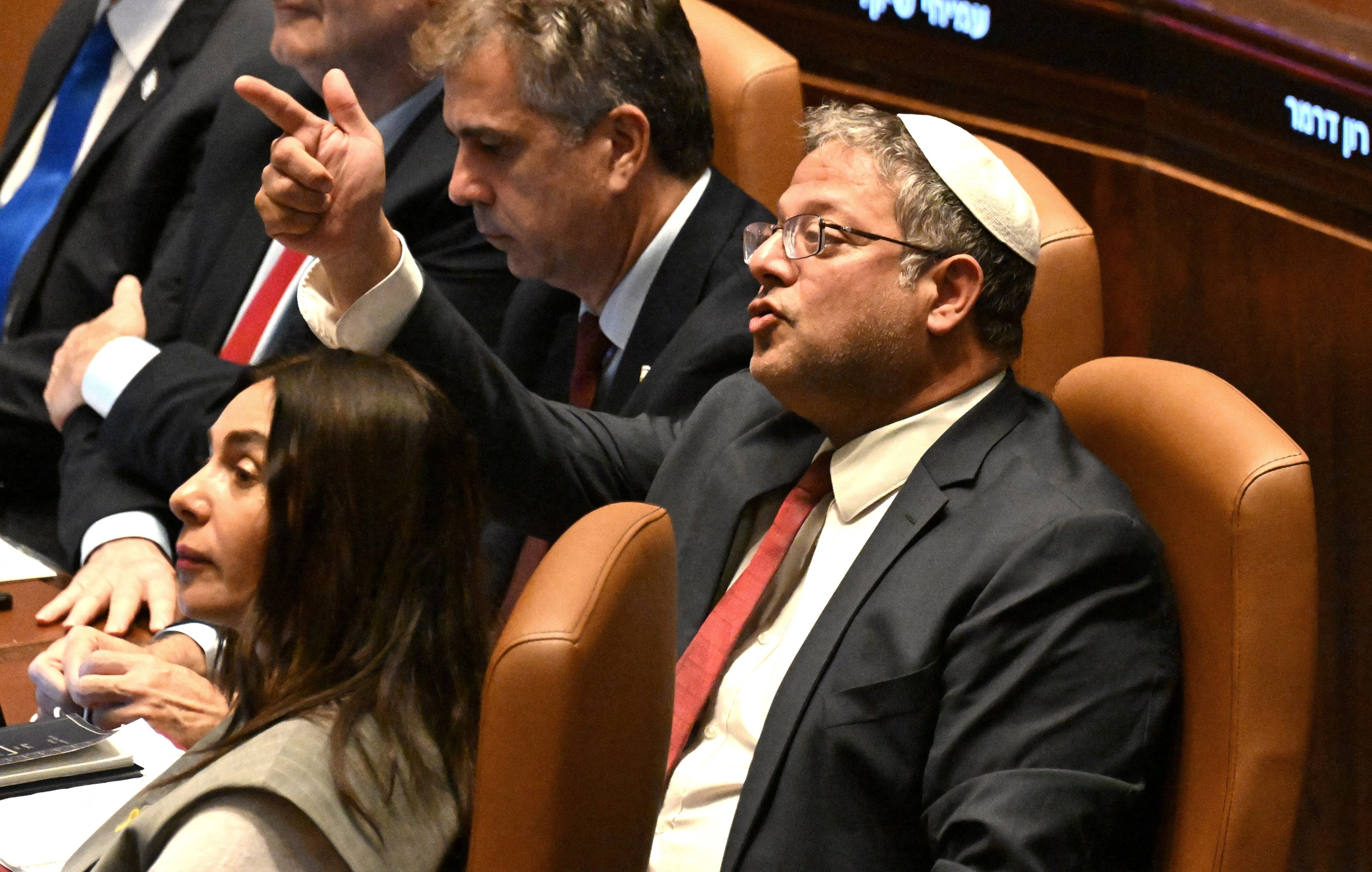Israel’s parliament, the Knesset, approved a piece of legislation on Thursday that gives the government permission to deport family members of those who Israel labels as “terrorists.” This law affects Israelis, as well as Palestinian citizens.
The law was sponsored by Hanoch Milwidsky, a member of the right-wing Likud party. If the legislation goes unchallenged by the courts, it would allow the interior minister to deport parents, siblings, or spouses of anyone labeled as a terrorist, if that person has “expressed support or identification” or failed to report information concerning an act of terror, or terror organization. Al Jazeera’s Nour Odeh points out that one potential issue with this policy is that “all Palestinian factions are labeled as terrorist organizations by Israel.” Additionally, expressing sympathy for the humanitarian situation in Gaza has previously been labeled as being sympathetic to terror.
Annelle Sheline, research fellow at the Quincy Institute, agrees, saying “the proposed legislation is horrifying, both for expanding Israel's existing policy of holding individuals accountable for the actions of members of their family, and for the extremely broad definition of so-called 'terrorism' that they intend to apply.”
Israeli national security minister Itamar Ben-Gvir expressed support for the new law on X: “today we passed a law deporting families of terrorists. It seems to me that the left has come under pressure, let's continue!”
The expulsions would range from 7-20 years depending on the legal status of the defendant. The law may be challenged in court, however, with a senior researcher at the Israel Democracy Institute, Eran Shamir-Borer, saying that the Supreme Court will likely strike down the law. “The bottom line is this is completely nonconstitutional and a clear conflict to Israel’s core values,” he said.
Israel does recognize a basic protection of freedom of speech and expression, but it is notably limited. Expression is restricted when it is likely to cause public harm. Speech that could insight racism, terrorism, Holocaust denialism, or insult to public servants is also restricted.
During the same session, the Knesset approved a temporary measure that allows for minors under the age of 14 to be imprisoned following a murder conviction that is connected to a terrorist act or organization.
- 100 years of conflict in Israel-Palestine and the 40-year Saudi-Iran rivalry: Best-selling Mideast books for 2020 ›
- Despite official celebrations, Arab street still resents the Abraham Accords ›
- Muslim-Americans favored Jill Stein in 2024 | Responsible Statecraft ›
- 'Terrorism'? Israel has weaponized the charge for decades | Responsible Statecraft ›
















